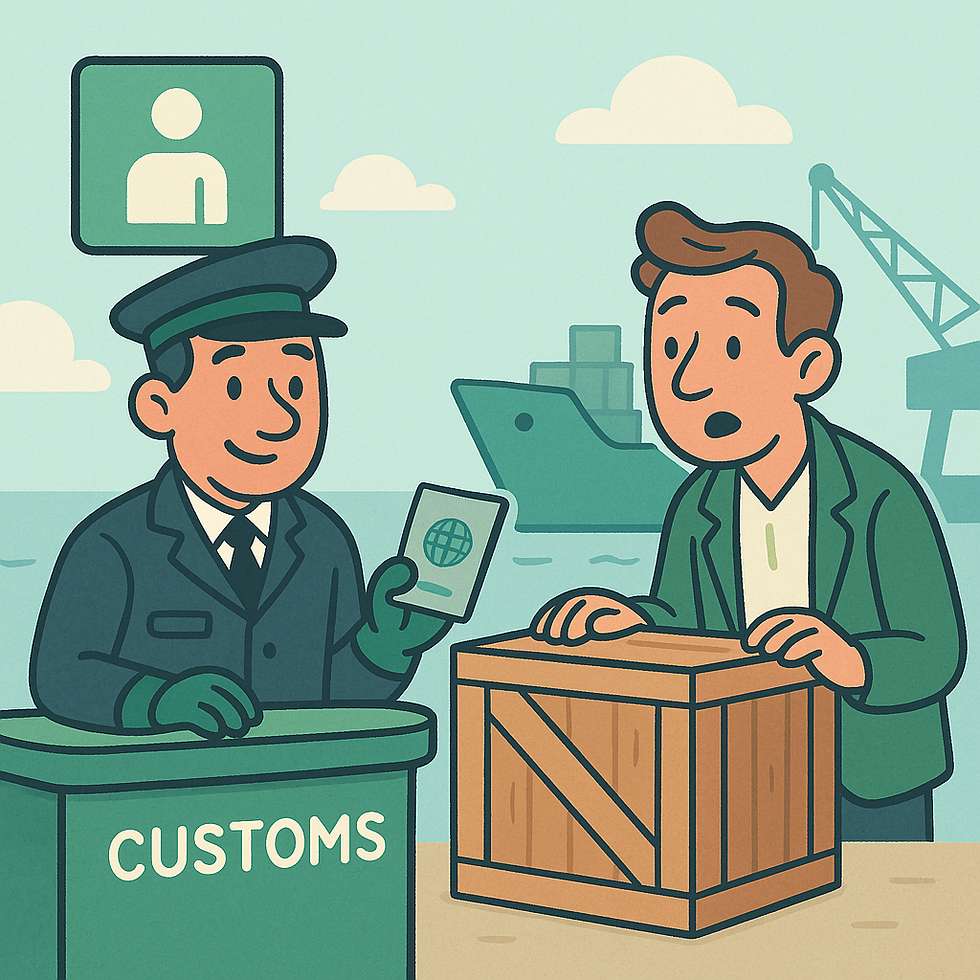Trump’s Tariffs: What the Word ‘Tariff’ Really Means in English and French
- James Batchelor

- Jul 31, 2025
- 3 min read
Have you noticed that some words—like tariff—suddenly show up everywhere in the news, especially during political debates? As an English teacher living in France, I’ve heard students stumble over this word again and again. What does it really mean? Is it the same as price? And why does the word tarif in French seem to mean something slightly different?
Let’s unpack the history of tariff and price, two words that have been traveling for centuries.

The Surprising Origins of Tariff
The word tariff didn’t start as a financial term. It actually comes from the Arabic word tariff, meaning notification or definition. Through trade routes in the Mediterranean, it passed through Italian (tariffa) and then entered French and English. By the 16th century, tariff came to mean a published list of customs duties on imports and exports.
So when you hear about Trump or the EU “raising tariffs,” you’re actually hearing the modern use of a word that started as a “notification” about trade fees between ports!
In English, a tariff typically refers to a tax on imports or exports. In French, a tarif often just means price list—like the price of a train ticket or a menu item.
That’s where the confusion starts for learners.
Tarif vs Tariff: A False Friend?
This is a classic example of a “false friend” between the two languages:
In French, “un tarif” often means a regular fee or set price ➤ “Le tarif d’un billet de train” = The price of a train ticket
In English, “a tariff” sounds more formal and economic ➤ “The government imposed new tariffs on steel imports”
If a student says, “I want to know the tariff for this course,” it sounds very bureaucratic in English—like they’re talking to customs officials! In everyday English, we would say price, cost, or even rate.
What About Price?
Price comes from Latin pretium, meaning value or reward. The French word prix shares the same origin. But again, context matters:
“The price of bread” is normal English
“Le prix du pain” is normal FrenchNo surprise there—except that in English, price rarely applies to abstract things. You wouldn’t say “the price of love” unless you’re being poetic or dramatic.
In French, however, metaphors with prix are much more common:
“Quel prix es-tu prêt à payer pour réussir ?”
“Le prix de la liberté, c’est la responsabilité.”
From Vocabulary to Headlines
When Trump made headlines for raising tariffs on Chinese goods, French media used the word droits de douane instead of tarifs to avoid confusion. Meanwhile, English-speaking audiences read about tariffs, while picturing political tension and economic retaliation.
So:
In French: tarif = price list, droit de douane = tariff
In English: tariff = trade tax, price = cost of something
This shows how a single word can carry very different emotional weight, depending on the language and context.
Final Thoughts
Words like tariff and price are more than vocabulary—they’re little windows into culture, history, and economy. As a bilingual person navigating both French and English every day, I’ve noticed how certain words evolve differently and carry different meanings in the media, in politics, and in everyday life.
As an English teacher in Vincennes, I often see students struggle with words like tariff and price, especially when reading international news. Whether you're following political debates or preparing for a professional context, an English course with CPF—either through E-learning or private tutoring in English—can help you feel more confident.
Next time you see tarif or tariff, pause. Are you reading a menu… or following a trade war?

Thank you for the clarification. It’s very useful in the actual context.
And I hope Trump will stop raising tariffs !